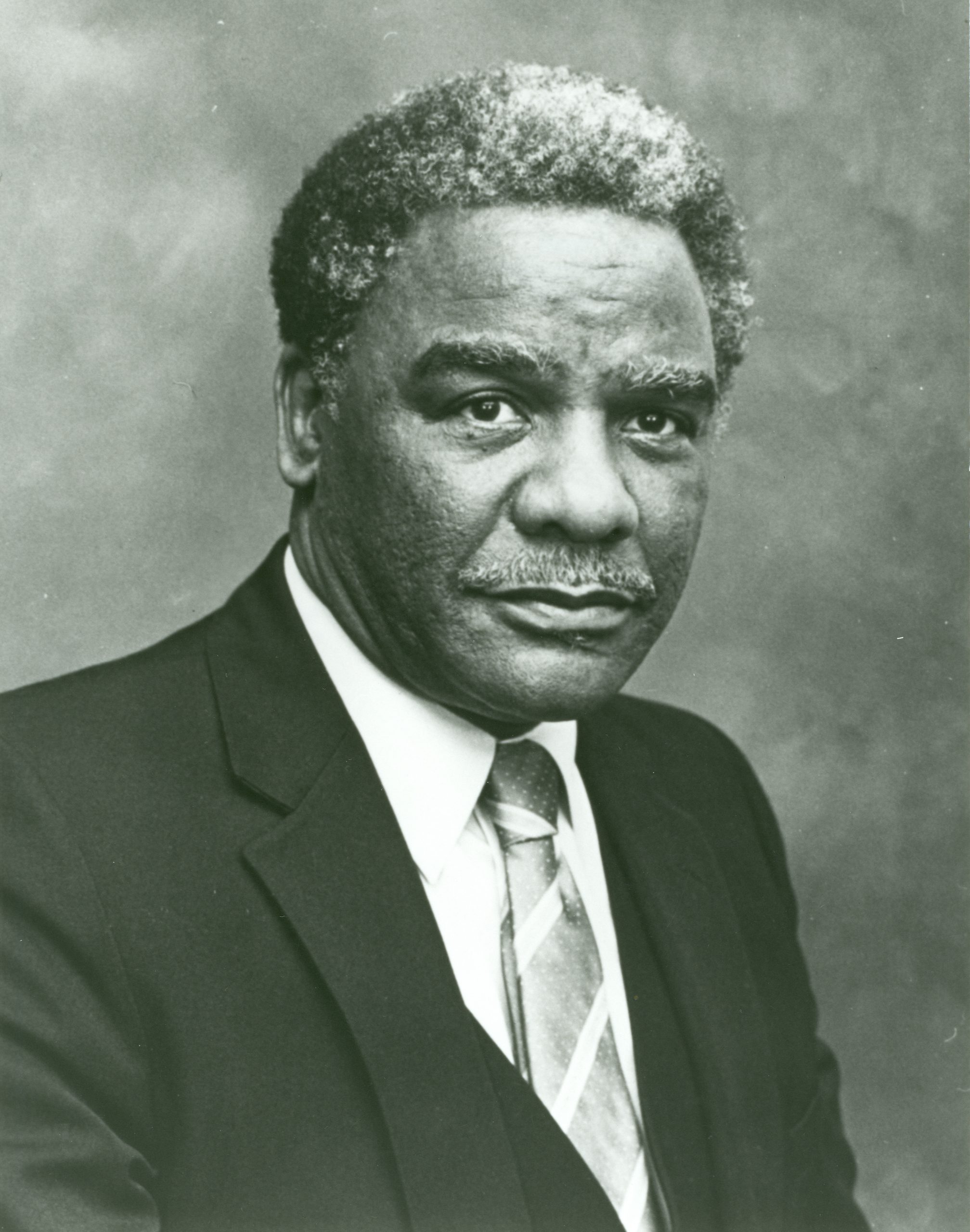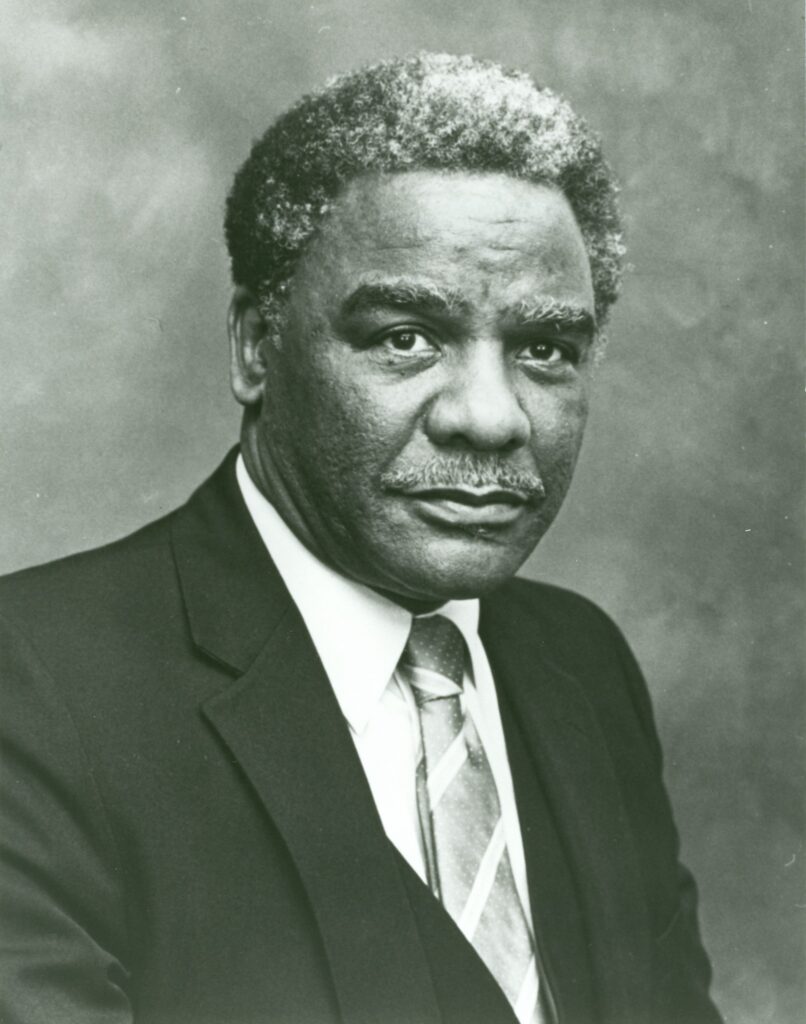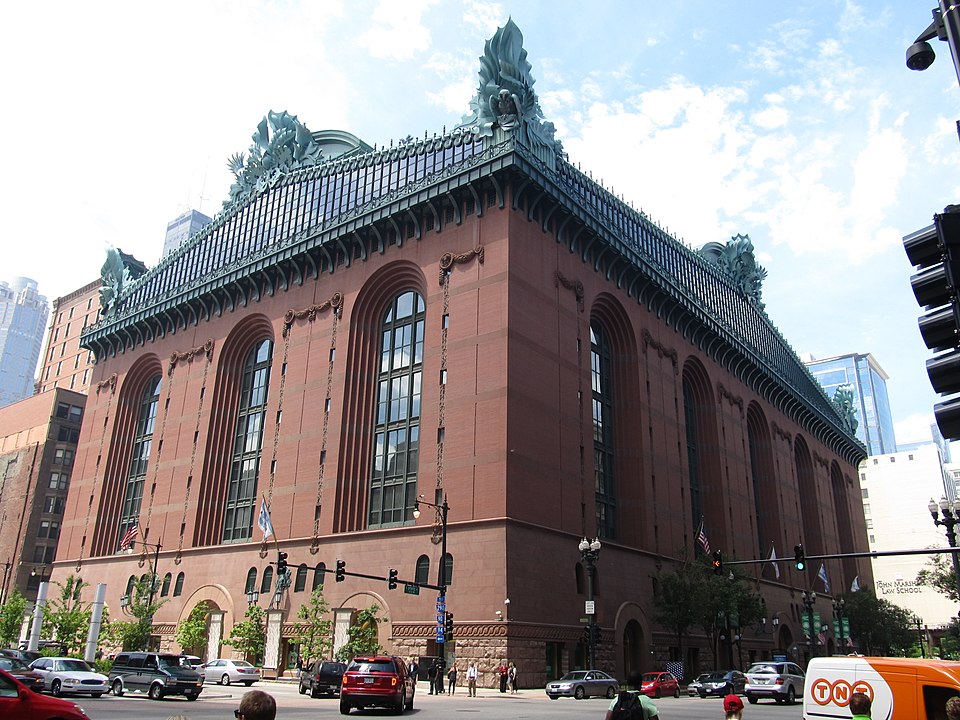
Meet Harold Washington, Chicago’s First Black Mayor
Published on February 21, 2023
In support of Black History Month, we’re pleased to feature Harold Washington, who served as Chicago’s 51st mayor from 1983-1987.
By Dave Lifton (@daveeatschicago)
On April 12th, 1983, Harold Lee Washington overcame all odds to become the first Black mayor of Chicago. It was a deserved, albeit hard-earned victory for the former lawyer and congressman from the South Side, who was three days shy of his 61st birthday when he was elected.

The son of a lawyer and a singer, Washington was born at Cook County Hospital in 1922 and raised in Bronzeville. He attended DuSable High School but dropped out after his junior year to work in a meatpacking plant. After a stint in the Army in World War II, Washington returned to Chicago, got his high school diploma and enrolled in Roosevelt College (now Roosevelt University). He was elected president of the student council in his senior year and graduated in 1949 with a B.A. in political science. He went to Northwestern University School of Law and earned his J.D. in 1952.
He joined his father’s law practice and got involved in local politics. After Roy Washington’s 1953 death, Harold took his position as 3rd Ward precinct captain and served as an assistant prosecutor for the city before moving on to the Illinois Industrial Commission in 1960.
Washington was elected to the Illinois House of Representatives in 1965, and moved to the state Senate in 1976. The death of Mayor Richard J. Daley’s in December 1976 prompted a special election. Washington threw his hat in the ring, but finished third in the primary out of four candidates.
In 1980, Washington decided to run to represent Illinois’ 1st district in the U.S. Congress. Campaigning as the anti-establishment candidate, he defeated incumbent Bennett Stewart in the Democratic primary, and cruised to victory in the general election. Washington railed against President Reagan’s agenda, including cuts to social programs and an increased defense budget. He also helped extend the 1965 Voting Rights Act, and easily won a second term.
Meanwhile, back home, Mayor Jane Byrne was facing a primary challenge from Richard M. Daley, the late mayor’s son. Harold agreed to enter the race after a registration drive that placed more than 50,000 Black Chicagoans on the voter rolls.
Despite both Byrne and Daley being more well-known and having a financial advantage, Washington built a coalition of the city’s Black and Hispanic communities and progressive whites and eked out a narrow victory with 36 percent of the vote in the primary.

By Ken Lund from Reno, Nevada, USA
Although Chicago hadn’t elected a Republican mayor since 1927, much of the city’s white Democratic base defected to Washington’s opponent, Bernard Epton, whose campaign was accused of stoking fears of a Black mayor by handing out all-white buttons and employing the slogan, “Epton … before it’s too late.” But Washington’s coalition held firm. He was elected with 51.7 percent of the vote, gaining 99 percent of the Black vote, 82 percent of the Hispanic vote, and 19 percent of whites.
In office, a group of 29 aldermen, led by Edward Vrdolyak, thwarted his agenda. The gridlock continued for three years until a federal court forced a special election that put three Washington allies on the City Council. Several more aldermen moved away from Vrdolyak, and Washington was able to enact his agenda. He led the charge for transparency in city government, reinvested in neighborhoods, and supported women’s and LGBT rights. Although he increased the number of city contracts to minorities, his approach was considered to be fair.
Running for a second term, Washington successfully fought off another primary challenge from Byrne, and defeated Vrdolyak, who bolted to the newly created Illinois Solidarity Party, in the general. But on the afternoon of Nov. 25. 1987, Washington suffered a heart attack in his office and died at the age of 65. His body laid in state at City Hall for three days before being interred at Oak Woods Cemetery in Greater Grand Crossing.
Harold Washington’s time as mayor was brief, but his legacy lives throughout the city. Downtown, a campus of the City Colleges of Chicago system is named after him, as is the main branch of the Chicago Public Library, which houses his archives. In Bronzeville, the Harold Washington Cultural Center, complete with a statue, sits at 4701 S. Martin Luther King Dr. An award-winning documentary about his life, Punch 9 for Harold Washington, was released in 2021.
Speaking to the Congressional Black Caucus in 2008, then-presidential candidate Sen. Barack Obama said, “I originally moved to Chicago in part because of the inspiration of Mayor Washington’s campaign. … I’ll never forget how he reached out to everyone — black, brown and white — to build a coalition for change.”
To learn more about Black history in Chicago, check out the eATLAS Adventure ‘Bronzeville: The Mecca of Culture and Excellence’ (https://adventures.playeatlas.com/view/vZUnWqQ6FMAlmcMtNnRd/Bronzevillerr-The-Mecca-of-Culture-and-Excellence).

The Adventure starts when you say it does.
All eATLAS Adventures are designed and built by experienced eATLAS Whoa!Guides. They're always on. Always entertaining. And always ready to go.
Check out our Adventures!